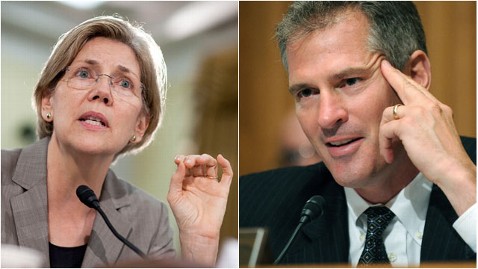Jan 18, 2012 12:24pm
“The Keystone Pipeline has been through three years and it’s passed every approval process as required by the law. Even the president’s own State Department has indicated that this thing ought to move forward,” Boehner said. “The Canadians are in conversations with the Chinese, and if we don’t build this pipeline to bring that Canadian oil and pick up the North Dakota oil and deliver it to our refineries in the Gulf Coast, that oil is gonna get shipped out to the Pacific Ocean and will be sold to the Chinese.”
“This is not good for our country,” he continued. “The president wants to put this off until it’s convenient for him to make a decision. That means after the next election. The fact is the American people are asking the question right now: Where are the jobs? The president’s got an opportunity to create 100,000 new jobs almost immediately. The president should say yes.”
Returning to Capitol Hill after three weeks of recess, Boehner also sharply attacked Obama’s record on job creation, saying that Republicans would focus their attention this year on creating private sector jobs.
“The policies that have been implemented by the Obama administration and the Democratic Congress they had that preceded us have made the economy worse and have made it more difficult for small businesses to create jobs,” Boehner, R-Ohio, said. “The issue of job creation in our country is critically important, and we’re going to continue to focus on it every single day that we’re here in Washington representing the interests of the American people.”
Boehner’s second in command, House Majority Leader Eric Cantor, echoed the speaker’s comments, telling reporters that House Republicans “are united around a realization that the policies that have been promoted by this administration have not worked,” but he pledged to work in a bipartisan fashion with Democrats “to make sure that we are doing everything we can to make small businesses the centerpiece of this country again.”
“When you look at the spending and you look at the continued expansion of Washington, what hasn’t happened is the expansion of the private sector and job creation,” Cantor, R-Va., said. “Our members are going to be hyperfocused on how we go about creating small business jobs. We all know that the engine of jobs in this country are the small businesses. That will be our focus.”
From January 2009 to December 2011, total private sector jobs have decreased by about 1 million. Excluding the first month of Obama’s presidency, from February 2009 to December 2009, private sector jobs dropped by 332,000. Of the country’s 13.1 million unemployed, 42.5 percent, or 5.6 million people, have been out of work for six months or longer.
However, since employment hit post-recession lows in February 2010, the economy has added more than 3 million private sector jobs, recovering much of the jobs lost. For all of 2011, the economy added 1.6 million total jobs, more than the 940,000 added in 2010.
Boehner welcomed back his rank and file colleagues this morning to the second session of the 112th Congress, after an unpleasant end to 2011 when House Republicans reluctantly accepted a temporary two-month extensionto the payroll tax credit and unemployment insurance. A closed-door conference meeting today lasted about 30 minutes longer than usual, with many members wishing to speak out after a lull back in their districts.
“We’ve got a lot of disparate voices in our conference,” Boehner said. “The president wanted the payroll tax credit extended for a year, so did we. We didn’t think the Senate should leave, but it was pretty clear the Senate wasn’t coming back. … We were picking the right fight, but I would argue we probably picked it at the wrong time.”
Boehner refuted criticism that the first session of the 112th Congress was the most unproductive on record and turned his disapproval to the United States Senate for a lack of action on a slate of House-passed legislation that Republicans believe would produce jobs.
“We’ve passed jobs bill after jobs bill after jobs bill. The House has done its work, but it takes two to tango, and that’s why our members are frustrated … that we’ve got 30 bills that will help produce more American jobs sitting in the United States Senate,” Boehner said. “It’s time for Harry Reid and Senate Democrats to quit playing hide the ball and to instead try to help the American people get the economy moving again.”




